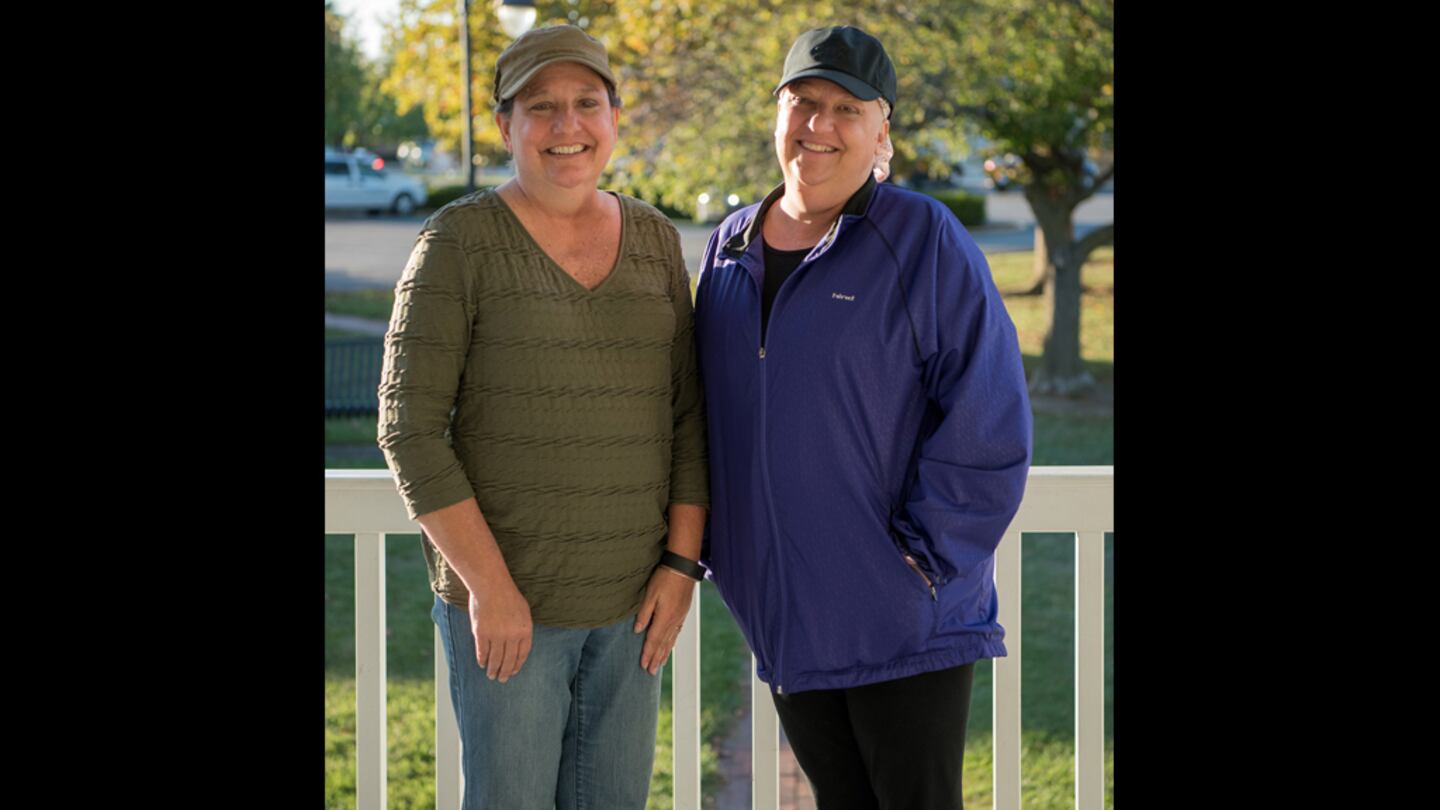Born two years apart, Vandalia sisters Jennifer Lewis and Sande O’Cull learned to share: mini skirts, shoes, the family car and a love of the 80s rock band Loverboy. But they never expected to share breast cancer.
Lewis, 51, was diagnosed first, right before Christmas 2016. “I put off getting a mammogram for years -- too busy taking care of everyone else, I guess,” she recalled. That mammogram led to an ultrasound, a biopsy and the news she suspected but didn’t want to hear. Lewis had invasive ductal carcinoma, hormonal positive.
Two years older, O’Cull was faithful about her yearly mammograms. “When they had me come back for a more extensive mammogram, I didn’t think much of it,” she said. But when that led to an ultrasound and biopsy, “I knew what was coming.” Her diagnosis came one month after her sister’s: invasive ductal carcinoma, triple negative.
A sibling’s cancer diagnosis can be worse than your own, O’Cull found. “I cried harder over Jennifer’s than mine.”
Although the two quickly adopted a “we’ll get through this together” attitude, they learned that breast cancer journeys are different for everyone.
"There are an infinite number of treatment possibilities," said their surgeon Thomas Heck, MD, surgical director of the Good Samaritan Hospital Samaritan Breast Center. "No two patients are exactly alike, and the characteristic of one cancer can be very different from the next, even when that next patient is your sister."
Lewis first had six chemotherapy treatments to shrink her tumor. A double mastectomy followed, then 25 daily radiation treatments. Reconstructive surgery is planned for the next few months.
O’Cull had a lumpectomy in March, followed by 16 chemotherapy treatments. Thirty daily radiation treatments will end in late November.
Chemotherapy now comes in many different forms, said Charles Bane, MD, oncologist and chair of the Premier Health Cancer Institute; each sister had a mix of medications tailored for her. "The intensity of a patient's chemotherapy drugs matches the type of cancer and the chance of recurrence," he explained. Along with chemotherapy, many supportive care medications are now given to help reduce side effects, although those do remain, including fatigue and loss of taste and body hair.
A hairdresser, O’Cull shaved Lewis’ hair when it started falling out. “She cried, I cried,” Lewis said. Without their blonde (O’Cull) and brunette (Lewis) locks, they sometimes are mistaken for twins. When the two are out together, they get lots of stares. Strangers often approach to share their own cancer story. “I especially like the stories that begin with ‘I had breast cancer 20 years ago…’” laughed O’Cull.
While Lewis missed four weeks of her accounts payable job because of treatment, O’Cull’s intense chemo left her so fatigued, it has been nearly impossible to return to her job at the salon. She learned that cancer not only affects you emotionally and physically, but also financially. Her husband, Dave, has worked seven days a week to make up the lost income.
Like many who get cancer, Lewis and O’Cull wonder why. So does their sister, Sheila, who was diagnosed with kidney cancer just months after her siblings’ breast cancer diagnoses. Although their sister did not get genetic counseling, Lewis and O’Cull did. Their tests showed no genetic reason for their cancer, and for that, they are grateful.
“If it had, the other women in their lives would know they are at risk and need a higher level of care,” explained Premier Health genetic counselor Faith Callif-Daley, MS, LGC. For the cancer patient, genetic testing can reveal likelihood of additional cancers.
Sharing a diagnosis and treatment for breast cancer is something that neither Lewis nor O’Cull could have imagined just a year ago. But today, they look forward to sharing their recovery and a lifetime of good health they hope will follow.
For more information about mammography and early breast cancer detection, visit premierhealth.com/mammo.






